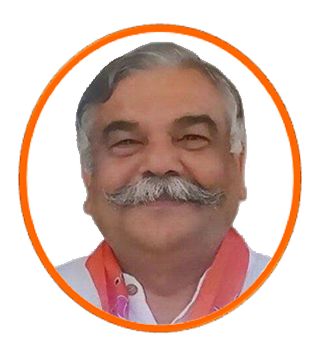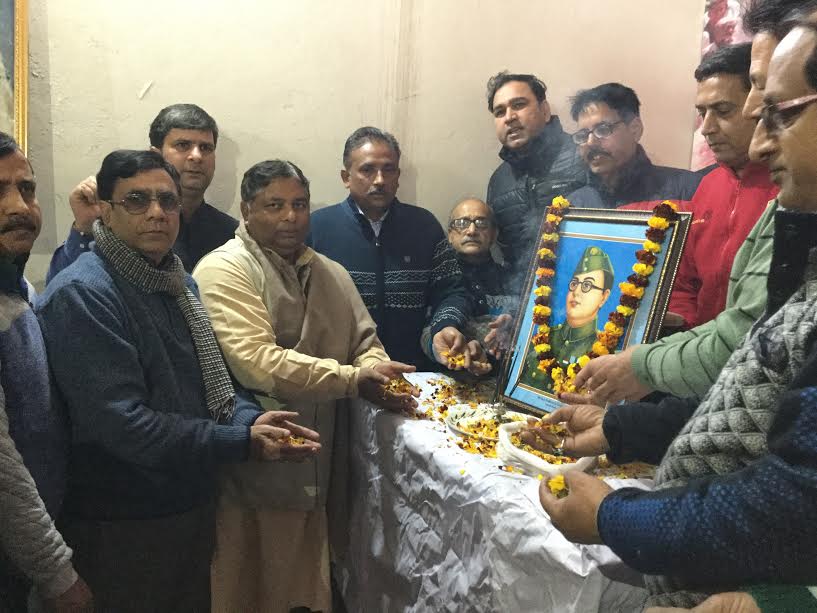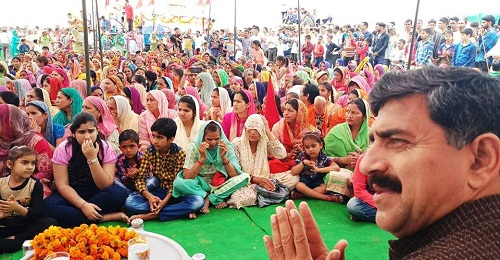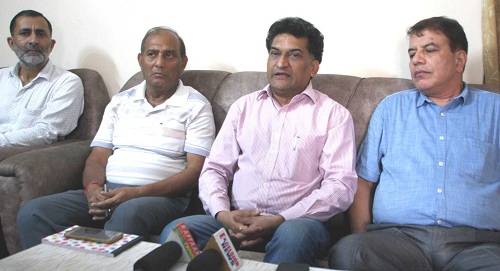Uhashered dawn of a new political era in India. The people of India voted for change as they were fed up with the ten year rule of Congress led UPA. Defying all predictions and prophecies of political pundits and analysts the people of India gave two-third mandate to BJP led NDA coalition under the dynamic leadership of Narendra Modi. Modi led government was sworn on 26 May 2014 with people of India hoping for a transformation. Modi set the agenda of government to include stability, transparency, sense of confidence in government, new direction of development (pace of development, monitoring and accountability) to eradicate poverty, focussed foreign policy to enhance India�s international image including cordial relations with neighbours and pride in the armed forces. �Duniya mein Desh ka Samman, Seemaon ki Suraksha aur Garibon ka Kalyan� was set as the mantra for the government. The decade of Congress rule was characterised by bad & corrupt governance, directionless and poor leadership and declining economy. In fact, the wrong economic policies of the Congress which ruled the country for nearly six decades had widened the rich-poor gap exponentially leading to increased poverty. From Nehru to Sonia they fooled the people with the slogan of �Garibi Hatao�. On the contrary the socio-economic philosophy of the BJP is based on the principle of Antyoday, enunciated by great thinker and philosopher Late Pandit Deendayal Upadhyaya. Antyoday means �Reaching the Unreached,� the dividend of development and governance should reach the last man in the last row. Bharatiya Janata Party�s ideology is of inclusive development and is best described as Sab Ka Saath Sab ka Vikas. The government�s thrust areas of socio-economic development are; Gaon (village), Garib (poor), Kisan (farmer), Mahila (Women), Mazdoor (labourer) and Yuva (youth).
In its pursuit to transform India, Modi government has many firsts to its credit. For the first time, smoke-free life to the poor by universalising LPG connection under Pradhan Mantri Ujjwala Yojana. For the first time the poor will get a health insurance cover under the New Health Protection Scheme. More than 21 crore people have access to financial services for the first time under Pradhan Mantri Jan Dhan Yojana, a scheme to ensure banking for the unbanked. For the first time, more than 12 Crore people have social security cover under the three social security schemes meant to secure the unsecured. For the first time ever, subsidies worth more than Rs. 61,822 Crore directly transferred to beneficiaries� bank accounts in a short time under the Direct Benefit Transfer Scheme. More than 3 Crore small entrepreneurs were disbursed loans for the first time by nationalised banks under Pradhan Mantri Mudra Yojana. For the first time, 2.07 Crore toilets have been constructed in rural and urban households in India in such a short time under Swachh Bharat Yojana. Despite irrigation being a state subject Modi Government for the first time has provided for Rs 80,000 Crore in the annual budget 2016-17 for irrigation.In order to bring light to every un-electrified village the government for the first time has undertaken a project to electrify 18,500 villages in 1000 days, with this initiative of the government every village in India will get this basic facility. 7779 villages have been electrified so far.In another first the government is promoting public participation in decision and policy making. Almost 19 lakh people interact daily with the Prime Minister through online portal mygov.in. The Prime Minister is also available on mobile App Narendra Modi. All ministers of the Union Government are available 24×7 on social media to interact with general public. Unfinished projects worth Rs 15 lakh crore have been revitalised under Pro-Active Government and Timely Implementation (PRAGATI). PRAGATI is a multi-purpose and multi-modal platform aimed at addressing grievances of common man. It also aims at simultaneously monitoring and reviewing Union Government programmes and projects flagged by state governments. The government intends to achieve the democratic goal of �Jan Bhagidhari� in governance. The introduction of self-attestation and doing away with interviews for lower rung government jobs are the other landmark pioneer decisions of Modi Government. The government can be termed as �Saral Sarkar Sidhi Sarkar.�
The government has also taken initiative in solving long term pending issues which needed bold decisions. Land Boundary Agreement with Bangladesh that was pending for four decades has been implemented resulting in transfer of enclaves between the two neighbours and ending uncertainty over nationality of 51,000 people in 162 enclaves. One Rank One Pension- OROP demand of the ex-servicemen that was pending since 1973 has been addressed. Revised rates of pensions have been notified and the first instalment of arrears amounting to 1465 Crore has been paid toover18 lakh veterans and families. The government has also taken decisive multi-pronged actions against the menace of black money. Special Investigation Team chaired by ex- Supreme Court Judge was constituted within first week of government installation. A new Black Money Act with strict penalty provisions has been enacted. Enhanced enforcement measures have resulted in unearthing of tax evasion of approximately Rs 50000 Crore of Indirect taxes and undisclosed income of Rs 21,000 Crore. The value of goods seized on account of smuggling activities has increased to Rs 3,963 Crore in the last two years. Prosecution against 1466 cases has been launched. Inquiry into Panama leaks has also been initiated. Under Swachh Bharat Swachh Vidyalaya Campaign announced by Narendra Modi from the ramparts of Red Fort on 14th August 2014, 4,17,796 toilets were added to 2,61,400 government elementary and secondary schools by 15th August 2015. Thus within one year 100 % targetof providing separate toilets for girls and boys in all government schools was achieved. In another major move towards settling long pending issues the first set of 100 declassified files regarding Netaji Subhas Chandra Bose were released on Netaji�s 119th Birth Anniversary on 23rd January 2016. The signing of tripartite agreement with Iran and Afghanistan for development of Chabahar port in Iran�s Baluchistan will be a strategic game changer in the region. With the introduction of Geospatial Information Regulation Bill 2016, that forbids wrong depiction, dissemination or publication of India�s geospatial information the government has made its intentions clear that India would not tolerate wrong or incomplete description of her maps on social media/internet. The violators would invite a seven year jail term and a fine of Rs 100 crore. Google has already amended the maps it displays and now shows entire J&K and Arunachal Pradesh within the Indian boundary.
Ever since this government came to power it has promulgated more than 50 schemes intended to benefit the deprived and neglected sections of the society. Empowering the poor, youth, women, farmers and development of rural areas in order to achieve the goal of Antyoday have been the major thrust areas of the government and a number of schemes have been launched by the government to this end. Apart from the government machinery the party cadre is also being used to ensure that benefits of the schemes reach the intended beneficiaries at their door step. According to Prime Minister Modi,
�Government has only one religion � India First,
Government has only one holy book � the Constitution,
The government must be immersed in only one Bhakti � Bharat Bhakti,
The government�s only strength is � Jan Shakti,
The government�s only ritual is � wellbeing of 125 Crore Indians,
The only code of conduct of the government is � Sabka Saath Saka Vikas.�
(The author is Jammu based political commentator and columnist. He is also the state spokesperson of Bharatiya Janata Party. He can be contacted at [email protected])




